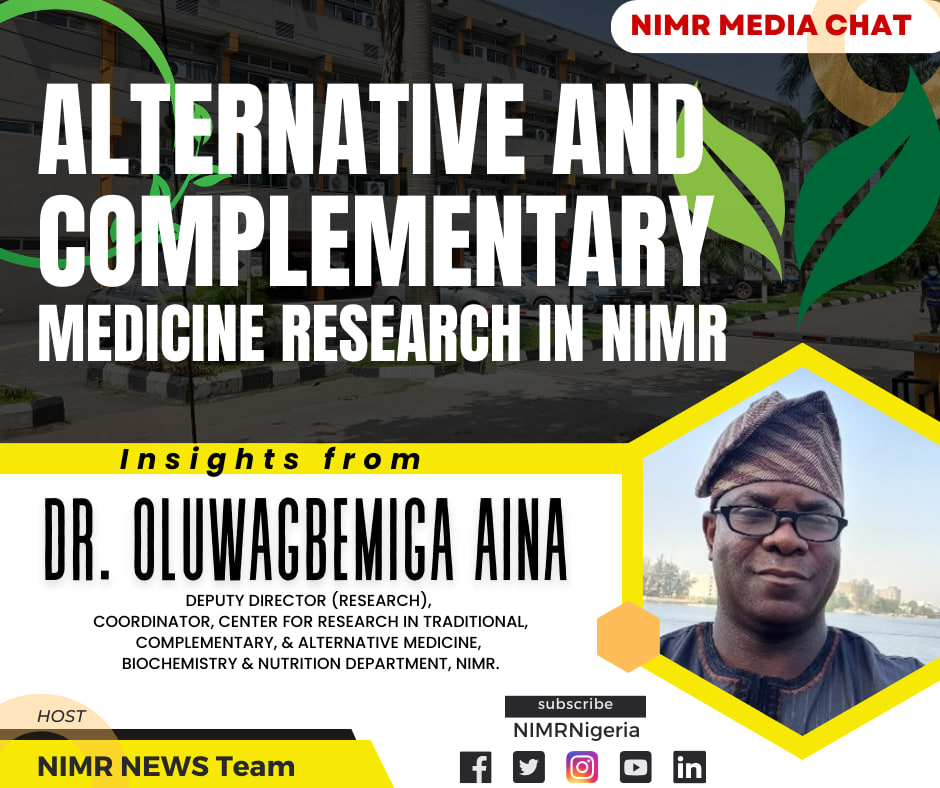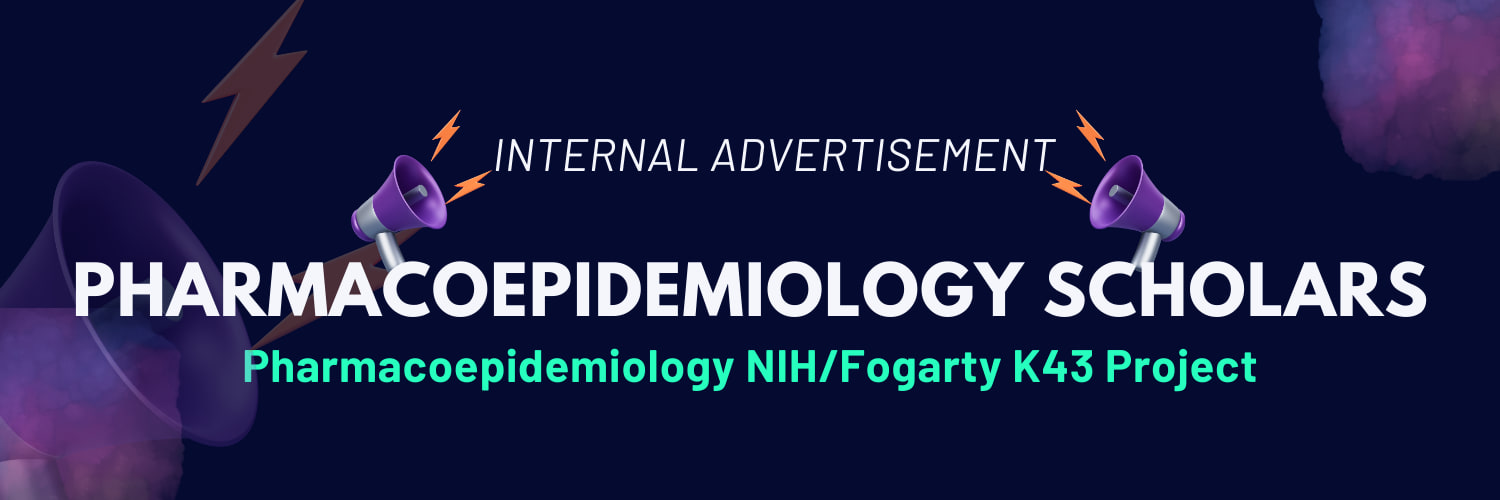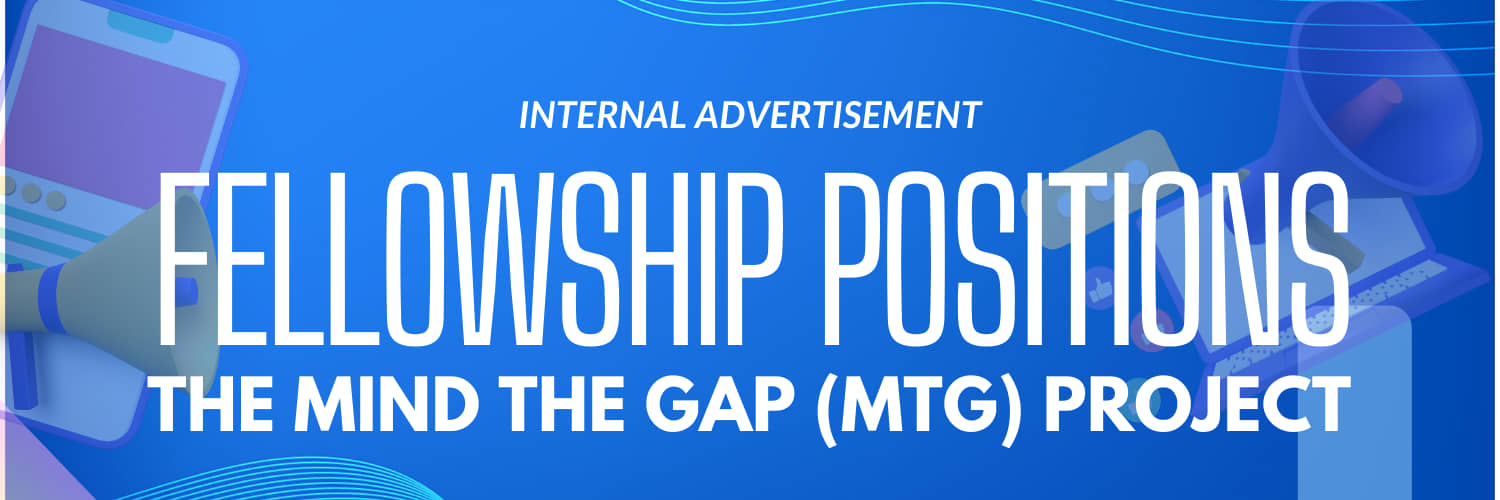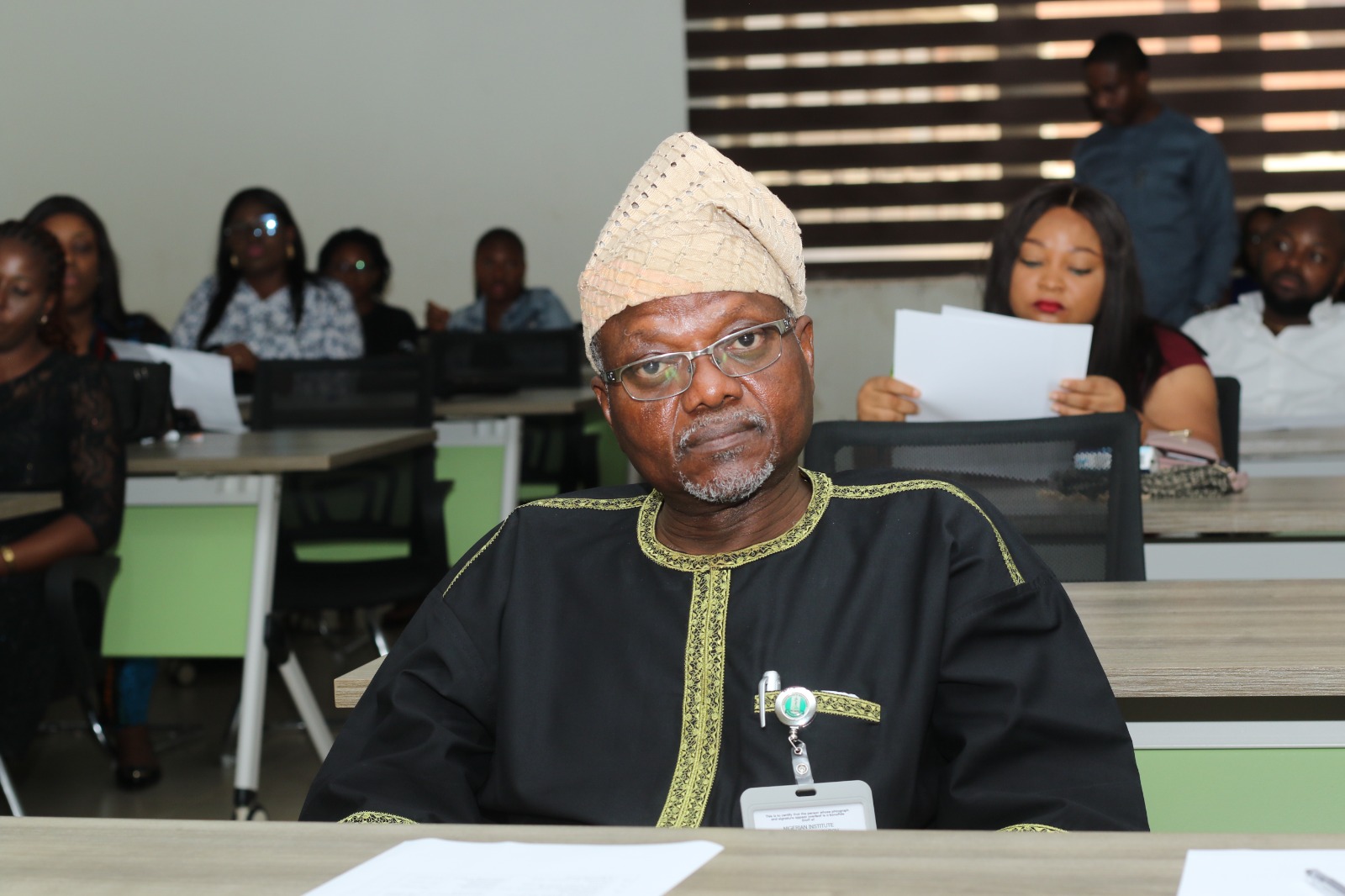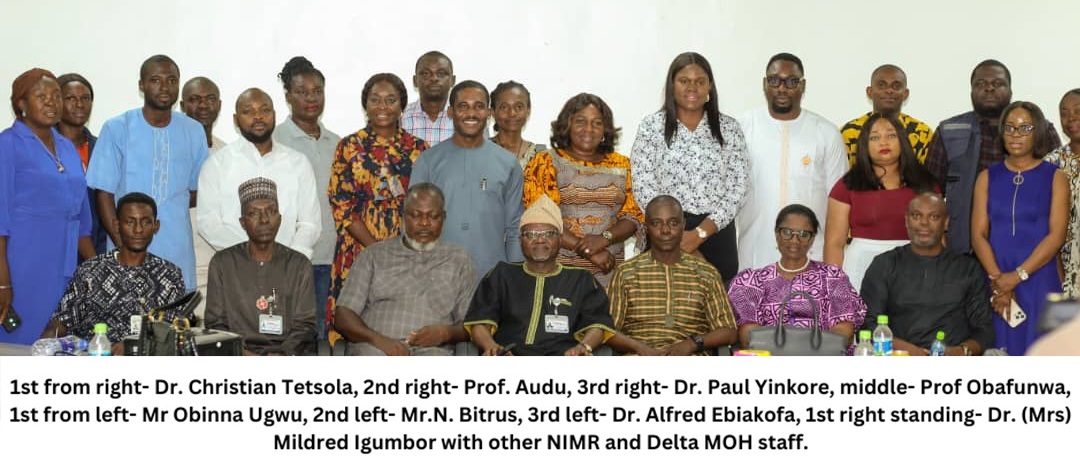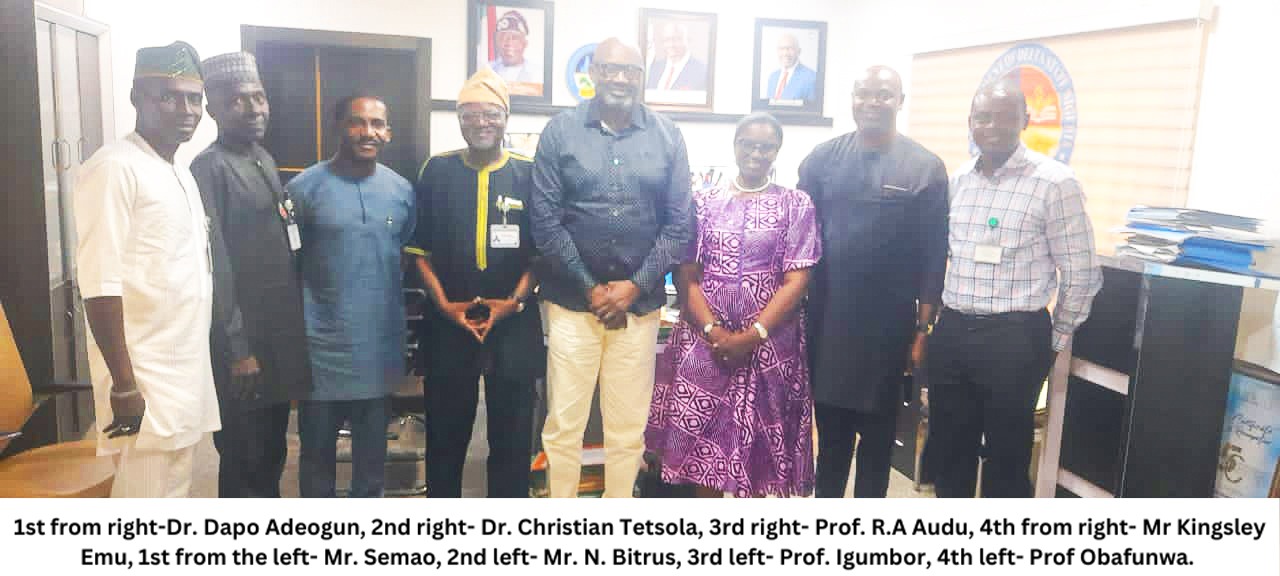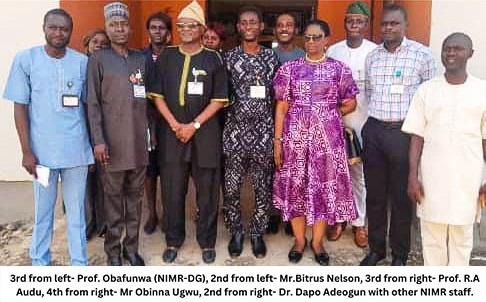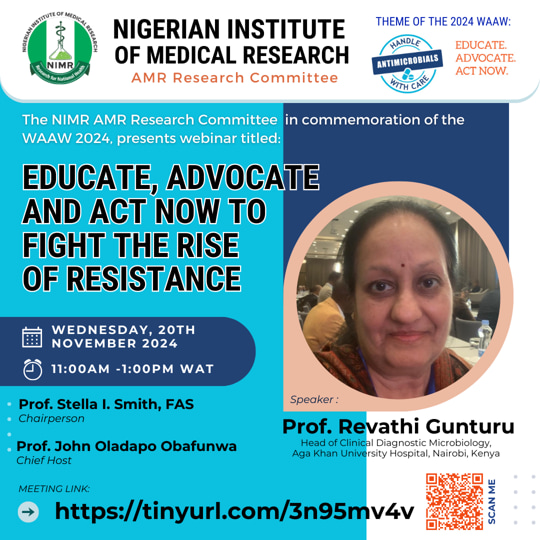- Kindly give us a brief about yourself and why you delved into Alternative and Complementary Medicine Research.
My name is Oluwagbemiga Aina, deputy director of research in the Biochemistry and Nutrition Department and the coordinator of the Center of Research in Traditional, Complementary, and Alternative Medicine at NIMR. I had my basic background in microbiology (B.Sc.) at Obafemi Awolowo University, served my country (NYSC) in Bendel, currently Edo State. I obtained my M.Sc. degree in the Pharmacology and Therapeutics Department, University of Ibadan. Subsequently, I pursued my PhD in the Pharmacology Department at the University of Lagos. I delved into Alternative and Complementary Medicine (ACM) because I had always had a passion for it since the year 1999, when I started working with NIMR, and because of that, I was curious about how we can also use herbal derivatives and their active compounds as a viable alternative or complement for curative health. This curiosity has led me on a journey that seeks to reinforce the importance of bridging the existing gaps between traditional practices and contemporary medicine. Hopefully, by advancing research and innovative approaches in the area of herbal medicine, we can deepen our understanding and potential impacts on human health.
- Can you share any specific experiences or moments that sparked your interest in antimalarial research using medicinal herbs?
My focus is on the chemotherapy of malaria, which involves the use of antimalarial drugs to treat the infection and prevent its spread. My interest in malaria led me to explore the antimalarial active ingredients in plants, using mouse models for my research. I began investigating whether any herbal products or plants could be effective in treating malaria. Malaria remains a significant health challenge in Nigeria, contributing to high mortality and morbidity rates, particularly among pregnant women and children. While conventional medicine has been widely used, it faces significant challenges, such as resistance to antimalarial drugs and high costs, which make access difficult for many vulnerable individuals. These issues have spurred me to explore alternative solutions. Moreover, my work as modern research aligns with the principles of Alternative and Complementary medicine as we seek to integrate traditional knowledge with contemporary scientific methods to address pressing health crises.
- What are some of your ongoing research projects?
One of our ongoing research projects is to do a safety profile of all medicinal plants and herbal products, or any product that the traditional practitioners are projecting to cure a particular ailment, before they officially make them available to the public. So, one of our primary roles is to assess the toxicity of the herbal products to ensure safety and validate their efficacy, as well as explore how they can be integrated into mainstream healthcare. The consumption of herbal medicine is rapidly increasing, but many of these products can be dangerous to human health. Unfortunately, it is difficult to prevent people from using them. So, overall, we are partners in ensuring safe consumption of herbal products for consumers and healthcare professionals. By doing so, we aim to enhance patients’ confidence about their safety and effectiveness, ultimately leading to greater acceptance and use.
- In what ways has NIMR support and collaboration impacted the field of Alternative and Complementary Medicine?
One significant outcome of our research project happened when some people from Afe Babalola University presented an herbal product that claims to cure COVID-19, which we tested and found out to have the ability to actually slow the virus that causes COVID-19. The authentication of this herbal product as an adjunct treatment for COVID-19 marked a groundbreaking discovery. We also have another research project from medicinal plants that can cure diabetes. However, we are yet to identify any medicinal plant that can effectively cure malaria, as the available options tend to suppress the parasites rather than eliminate them.
- What is the level of research collaboration between the institute and practitioners of Alternative and Complementary Medicine, and how smooth is the collaboration?
The level of our collaborations varies; some are dedicated to scientific research, while some are for training purposes. The NIMR team has played an important role in the areas of certifying herbal products that are deemed safe for consumption before final certification by the National Agency for Food and Drug Administration and Control (NAFDAC), which is a groundbreaking role for herbal practitioners. In addition, we collaborate with organizations such as the Nigerian Council for Physician and Natural Medicine, Lagos State Traditional Medicine Board, Paxherbal Clinical and Research Laboratory, and other Research Institutes. Many of these institutions send their students to NIMR to be trained, and this contributes to a good collaboration.
- What steps do you believe are necessary for stakeholders (researchers, the government) to achieve proper integration of Alternative and Complementary Medicine into the mainstream healthcare system?
This will actually require a multifaceted approach from the government, researchers, and even the practitioners. One is the need for investment in the area of Alternative and Complementary Medicine. With serious investment in research and human capacity building, you can conduct rigorous research and evaluate the efficacy, safety, and mechanisms of Alternative and Complementary Medicine practices because this is crucial for ensuring that the herbal products are both beneficial and non-harmful. For practitioners, one of the best steps to achieve this is to develop groundbreaking herbal medicines or products that can effectively address prevalent diseases, such as malaria. Such innovations can enhance the acceptance of Alternative and Complementary Medicine within the mainstream healthcare system. By so doing, we might get proper attention and the support needed for research in the area of Alternative and Complementary Medicine. Meanwhile, we have been working profusely on achieving this in NIMR. Currently we are conducting a clinical trial on herbal products for prostate enlargement, prostate cancer, and arthritis, which is ongoing research. Once the result is ready and seems interesting, we will disseminate it and let the people know that herbal medicinal plants are working for us. There is also a need to facilitate an interdisciplinary collaboration between Alternative and Complementary Medicine and the mainstream healthcare system. There is an increasing acknowledgment of the benefits that Alternative and Complementary Medicine (ACM) can offer to patient care. So, as we seek holistic approaches to health issues, especially locally, it is important for healthcare systems to incorporate these modalities alongside conventional medicine. This will in no doubt encourage partnerships between conventional healthcare providers and ACM practitioners. This collaboration can enhance communication, knowledge sharing, and create integrated care models that address patients’ diverse needs.
- What are the challenges encountered in conducting research in this field, and what are the efforts in mitigating them?
The main challenge is inadequate funding. If the government is ready to make funds available to support research in this area, it will go a long way. Though the result might not be immediately as we wanted it, as we make progress, we are going to certainly see an improvement in the area of research. The Institute, in its own capacity, has been funding our Centre to conduct most of the research I mentioned. Another challenge we are having is that when the herbal practitioners bring their products for us to validate, they do not like disclosing what the products contain, which is really a challenge. Transparency regarding the components of any herbal products is critical for safety purposes and building trust for both the consumers and regulating bodies.
- Where do you see the connection between Alternative and Complementary medicine and conventional medicine in the near future in Nigeria?
I see that we are going to come together because there has been a proposal in the universities that suggested that all medical students should have knowledge of alternative medicine in their curriculum, which brings about a bright future for the collaboration between alternative medicine and complementary medicine in Nigeria. Moreover, it will broaden students’ perspectives by introducing them to alternative therapies in healthcare, preparing them for their future practice. This understanding will help them appreciate the diverse beliefs and practices that patient may have. As a result, they will be better equipped to provide holistic care, engaging in discussions about various treatment options with patients and fostering greater satisfaction in the care they provide.
- What advice would you give researchers who may consider undertaking research in alternative complementary medicine?
The field of Alternative and Complementary Medicine (ACM) is growing and evolving. So, it offers researchers the opportunity for innovation and discovery if well harnessed considering the attention we are getting. I will encourage any researcher who wants to undertake research in this field to continue until we achieve a remarkable result. It is just that not too many young researchers are interested.


